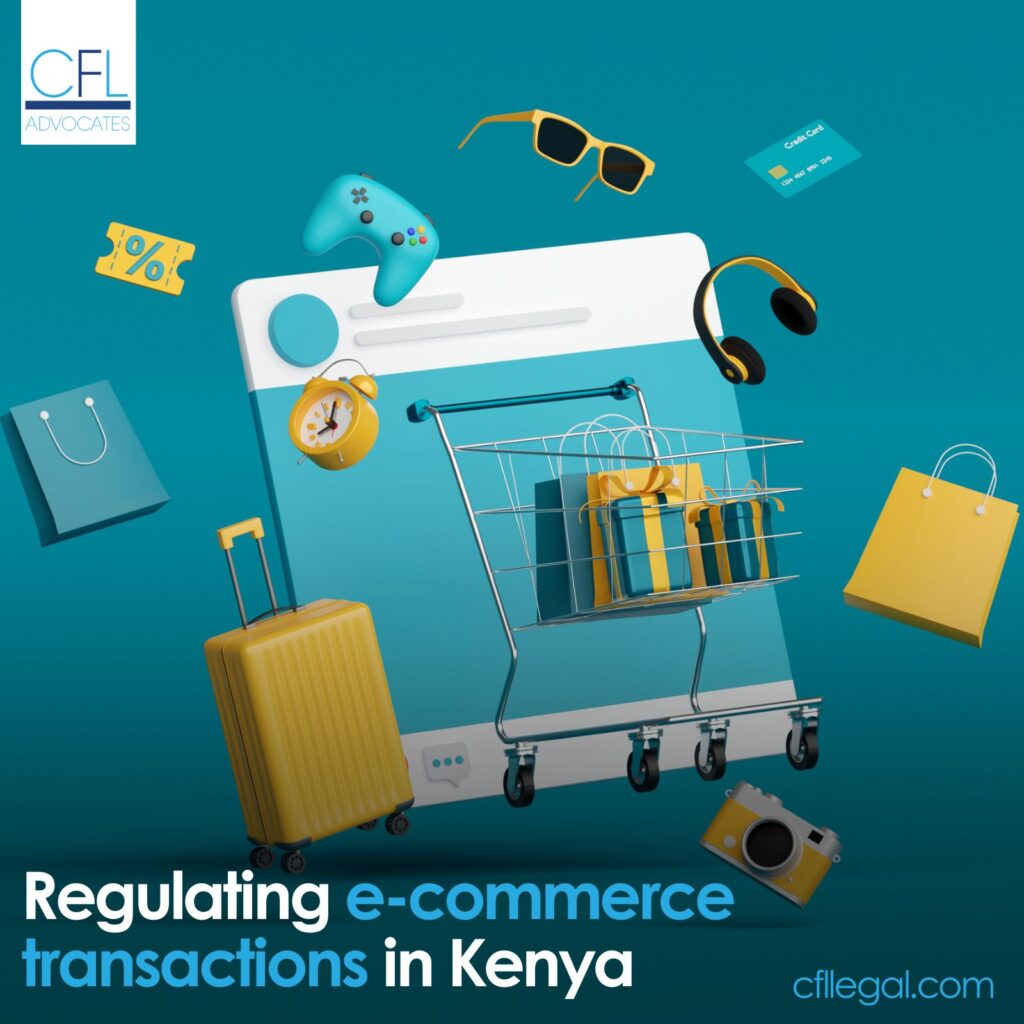
The exponential growth of Kenya’s digital economy is transforming how businesses engage with consumers. From online retailers and mobile food delivery services to subscription-based software and digital marketplaces, e-commerce has become a cornerstone of modern trade. The widespread adoption of mobile money, improved internet connectivity and a youthful, tech-savvy population have only accelerated this trend.
Yet, amid this digital transformation, many businesses are either unaware of or underprepared for the legal obligations that come with operating in the e-commerce space. Regulatory compliance particularly in areas of consumer protection and data privacy is no longer optional. With heightened enforcement from regulatory bodies such as the Office of the Data Protection Commissioner (ODPC)and the Competition Authority of Kenya (CAK), businesses must be proactive in aligning their operations with the law.
Understanding the legal landscape of E-Commerce in Kenya
Kenya does not yet have a single statute dedicated to e-commerce. Instead, businesses must navigate several interrelated laws, including:
The Consumer Protection Act, 2012 (No. 46 of 2012) – Governs fair trading practices and outlines consumer rights in both physical and digital transactions.
The Data Protection Act, 2019 (No. 24 of 2019) – Establishes rules for lawful collection, processing, and storage of personal data.
The Kenya Information and Communications Act (KICA), Cap 411A – Provides the framework for electronic communications and online transactions.
The Computer Misuse and Cybercrimes Act, 2018 (No. 5 of 2018) – Criminalises cyber offences such as hacking, identity theft and online fraud.
Together, these laws create a comprehensive regulatory ecosystem that every e-commerce business must understand.
Consumer protection in the digital space
Online businesses have the same, if not greater obligations as physical retailers. Under the Consumer Protection Act, online sellers must provide accurate, accessible information about their products or services, including full pricing (taxes and delivery fees), and clear terms of sale. Consumers are entitled to a “cooling-off period” (typically 14 days) to cancel certain purchases made online. Any form of misrepresentation such as misleading advertising, hidden charges, or inflated discounts constitutes an unfair trade practice and may attract regulatory penalties. Transparency and honesty in marketing are therefore legal as well as ethical imperatives.
Businesses must also ensure secure payment methods. If consumer financial data is compromised due to negligence, liability may arise. Those using third-party payment gateways must verify compliance with financial and data protection standards.
Data protection compliance: A legal obligation, not an option
The Data Protection Act, 2019 (No. 24 of 2019) requires all entities handling personal data including names, contacts, addresses, payment details and user behavior to register with the ODPC. Consent must be obtained before collecting data and a clear, accessible privacy policy must explain how data is used, stored and protected.
If personal data is processed or stored outside Kenya, the receiving country must have adequate safeguards or prior approval from the ODPC. Non-compliance may attract penalties of up to KES 5 million or 1% of annual turnover, and enforcement actions are increasing.
Cybersecurity and fraud prevention
Under the Computer Misuse and Cybercrimes Act, 2018 (No. 5 of 2018), offences such as phishing, online fraud and unauthorised system access are criminalised. E-commerce businesses must therefore implement robust cybersecurity measures such as SSL encryption, secure authentication and regular system audits to protect users.
In the event of a data breach, the Data Protection Act requires prompt notification to both the ODPC and affected consumers, making incident response plans essential.
The importance of proper legal documentation
Many Kenyan e-commerce businesses operate without proper Terms and Conditions (T&Cs) or privacy policies, exposing themselves to legal and operational risks. These documents are essential as they define the relationship between the business and its users, limit liability and support the enforceability of online transactions.
T&Cs should cover key areas such as payment terms, delivery, returns and refunds, dispute resolution and jurisdiction. Alongside a clear privacy policy, they form the legal backbone of any online platform.
Conclusion
E-commerce in Kenya continues to grow at an impressive pace, offering new opportunities for innovation and entrepreneurship. However, legal compliance remains a fundamental requirement for sustainability in the digital marketplace.
Businesses that operate online whether as local start-ups or global platforms targeting Kenyan consumers must take proactive steps to understand and comply with the legal frameworks around consumer protection, data privacy, and digital transactions.
For more information on consumer protection, data privacy or digital compliance for your online business, contact us contact us at info@cfllegal.com


